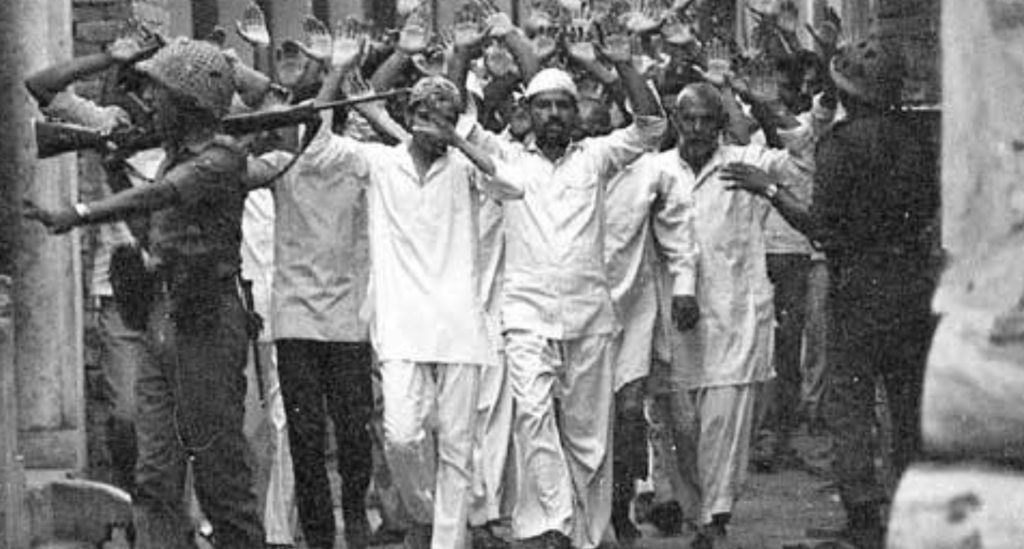After 36 years and almost 800 hearing on the communal violence in western Uttar Pradesh (Hashmpura and Maliana) in 1987, the final Verdict has been given today by district judge Lakhvinder Singh Sood. During the Massacre 72 people lost their live in 1987, but due to insufficient evidence 39 accused on this case are set free.
Reason of Massacre
The Babri Masjid is a mosque in the city of Ayodhya in the Indian state of Uttar Pradesh. In 1986, a local court ordered the mosque to be locked and prevented from being used for religious purposes. However, in 1987, the locks were removed from the mosque, allowing Hindus to perform a religious ceremony inside the mosque premises. The unlocking of the mosque led to protests by Muslims, and tensions between the Hindu and Muslim communities in the region began to escalate.
The decision to unlock the mosque was taken by the local administration in Meerut, and there is no evidence to suggest that Rajiv Gandhi had any involvement in this decision. In fact, Rajiv Gandhi was Prime Minister of India at the time, and his government was committed to promoting communal harmony and preventing violence between different religious communities in the country.
The Story of Hindu-Muslim Massacre
The Hindu-Muslim clashes in Meerut in May 1987 were a series of violent incidents between Hindus and Muslims that took place in Meerut, a city in the Indian state of Uttar Pradesh. The violence began on May 10, 1987, and continued for several days, resulting in the deaths of at least 50 people and the injury of hundreds more.
The clashes were triggered by a dispute over the use of a loudspeaker at a mosque during a Hindu festival. The dispute quickly escalated into violence, with mobs from both communities attacking each other with stones, knives, and other weapons. The police were initially unable to control the violence, and the Indian Army was called in to restore order.
The violence in Meerut was part of a larger pattern of communal violence that has periodically erupted in India, particularly in the aftermath of religious festivals or other perceived provocations. The clashes in Meerut were widely condemned by political leaders and civil society organizations, and several inquiries were conducted to determine the causes and consequences of the violence. The incident also led to calls for greater efforts to promote communal harmony and religious tolerance in India.

